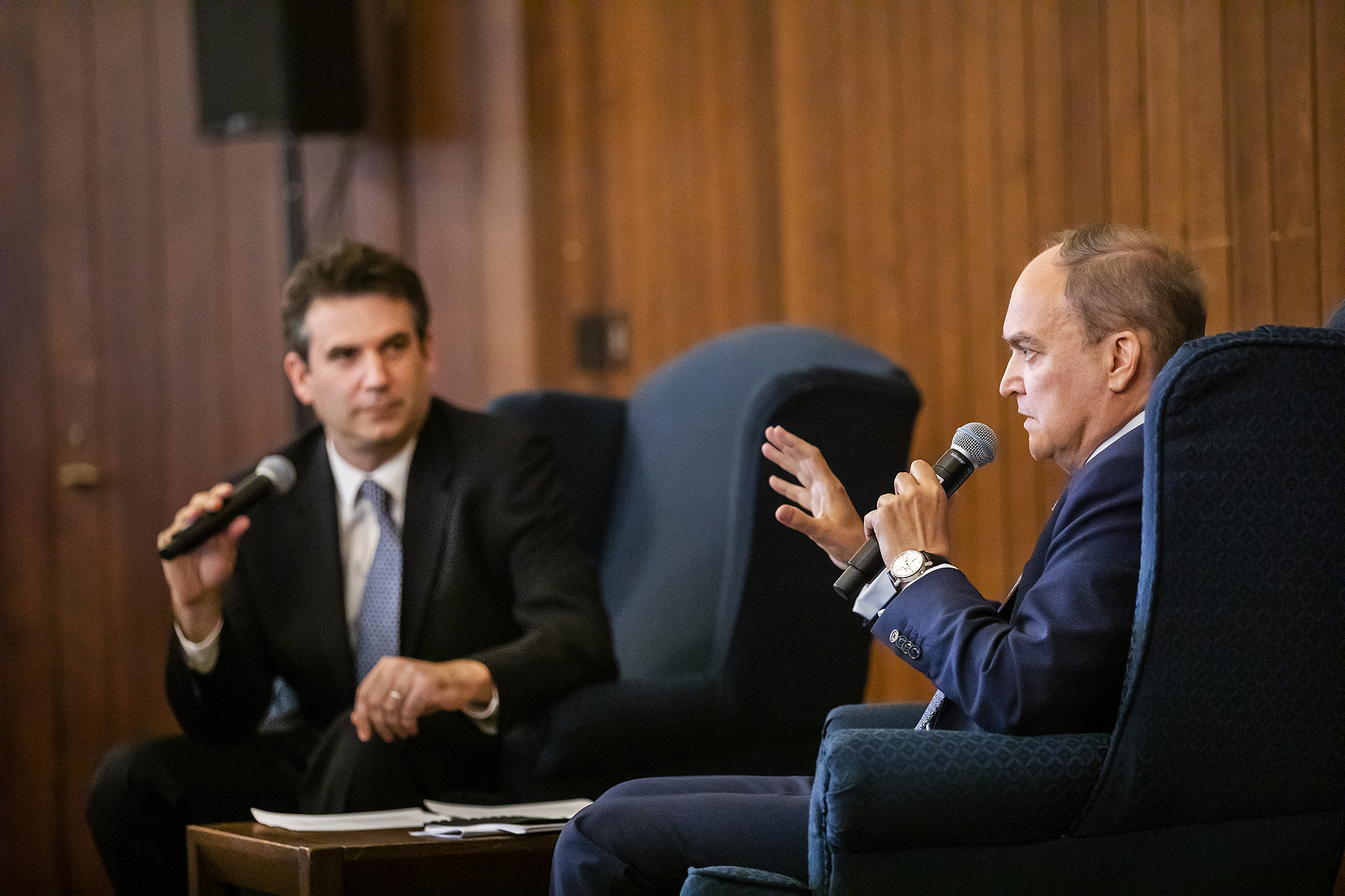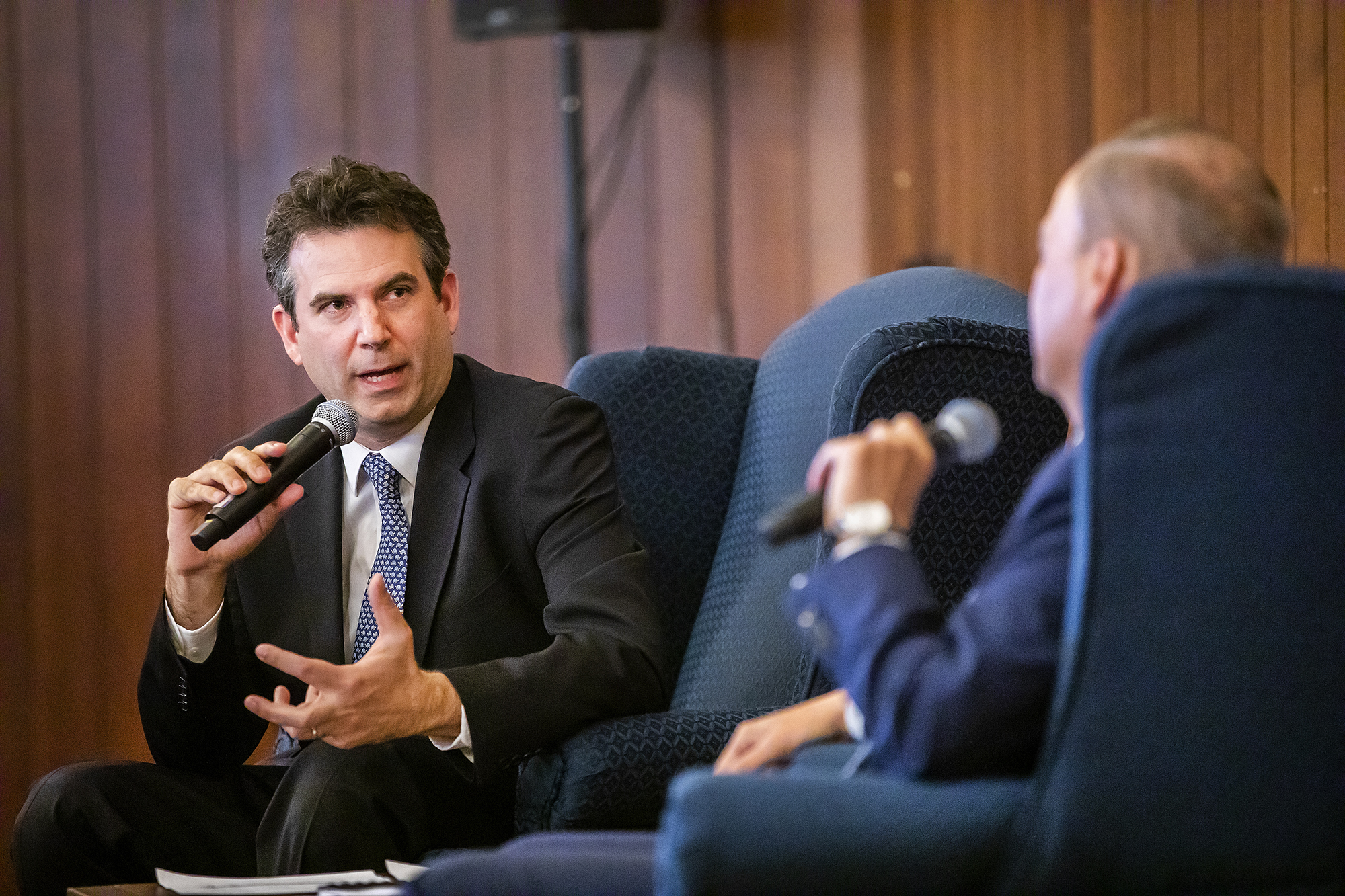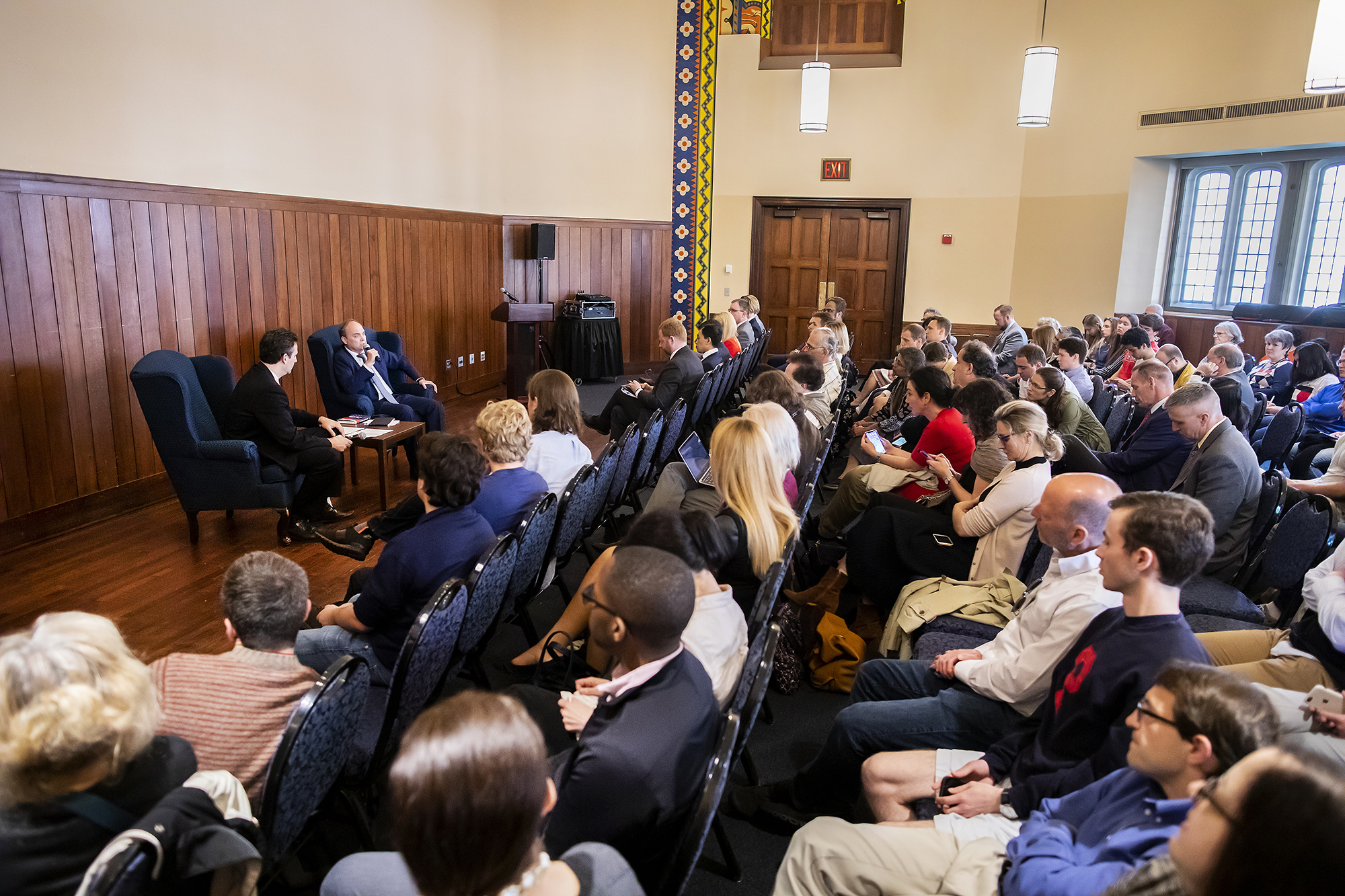
Midway through their hour-long public conversation on Penn’s campus, Professor Mitchell Orenstein asked Anatoly Antonov, Russia’s ambassador to the United States, a pointed question in a friendly way.
“Is Russia,” Orenstein asked, “‘pleased’ with President Donald Trump? Is he living up to senior politicians’ expectations?”
Antonov, smiling, largely demurred. The question, he said, was “above my pay grade.” American elections are the business of American voters, he said.
“You will decide who runs your country,” he said. “And if you’re satisfied, we will work with anyone.”
The question cut to the heart of allegations of Russian tampering in the 2016 presidential election, which continue to swirl even in the wake of the release of the report from Special Counsel Robert Mueller. To Russia experts like Orenstein, the chair of Penn’s Russia and East European Studies Department, what happened bears a strong resemblance to tactics used by the Russians to influence elections in other counties, particularly Ukraine, over more than a decade.
Orenstein’s new book, “The Lands in Between: Russia vs. the West and the New Politics of Hybrid War,” details some of those efforts and explains how they’ve influenced democracies and politics throughout Western countries, including the U.S. and Europe.
Orenstein gave Antonov a copy of the book, but the conversation largely stayed in the realm of diplomatic relations between the U.S. and Russia. In his opening remarks, Antonov lamented what he called the “fake news” being spread about Russia in the American media and by politicians.
“Sometimes it seems to me Russia is even responsible for bad weather in Washington, D.C., and New York,” he said, chuckling. Then he grew more somber.
“The current state of U.S.-Russia relations does not suit the interests of our nations,” he said. “Russia and the United States must find common ground.”
Orenstein pressed Antonov briefly about the active sanctions imposed on him by the European and Canadian governments because of his involvement in the invasion and annexation of Crimea and the fighting in eastern Ukraine. Before becoming the ambassador to the U.S. in September 2017, Antonov was deputy minister of foreign affairs and deputy minister of defense in the Russian government.
Antonov insisted that, as a civilian policy maker, he had no troops under his command and was being targeted “just because of my position.”
Asked why he thought the U.S. government had not followed suit, he smiled and said, “It’s better to ask the FBI and CIA.”
More important, he said, is the state of arms control negotiations, which have foundered. The Trump administration announced in February that the U.S. would withdraw from the Intermediate-Range Nuclear Forces (INF) Treaty because Russia was in violation of the 1987 agreement.
That decision both highlighted the decline of the diplomatic relationship and alarmed military analysts, who see the breakdown as a sign that the old Cold War-era arms race could return.
“Was it a mistake for Russia to give the U.S. an excuse to pull out?” Orenstein asked.
Antonov bristled at the idea that Russia was violating the terms of the treaty and said the U.S. government wanted out of the treaty so it could keep missiles that have the ability to reach China.
“We consider there is no violation of the treaty,” he said. “It’s impossible to find a compromise on the basis of an ultimatum.”
Still, he emphasized, the issue of arms control is too important to let slip away. During World War II, Antonov said, Russians and Americans fought a common enemy for a common cause. A better relationship between the two countries is possible, he said.
Many spheres of the relationship have been destroyed, he said, but several areas of cooperation remain, including space exploration, academia, and even some military elements. Reestablishing other ties should be a priority for both countries, Antonov said.
“Our most basic common link is that we all share this common planet, we all breathe the same air, we all cherish our children, and we are all mortal,” he said. “We need to step back from confrontation and look for compromises and ways to reconcile.”
Mitchell Orenstein is a professor and chair of the Russian and East European Studies Department in the School of Arts and Sciences at the University of Pennsylvania.









